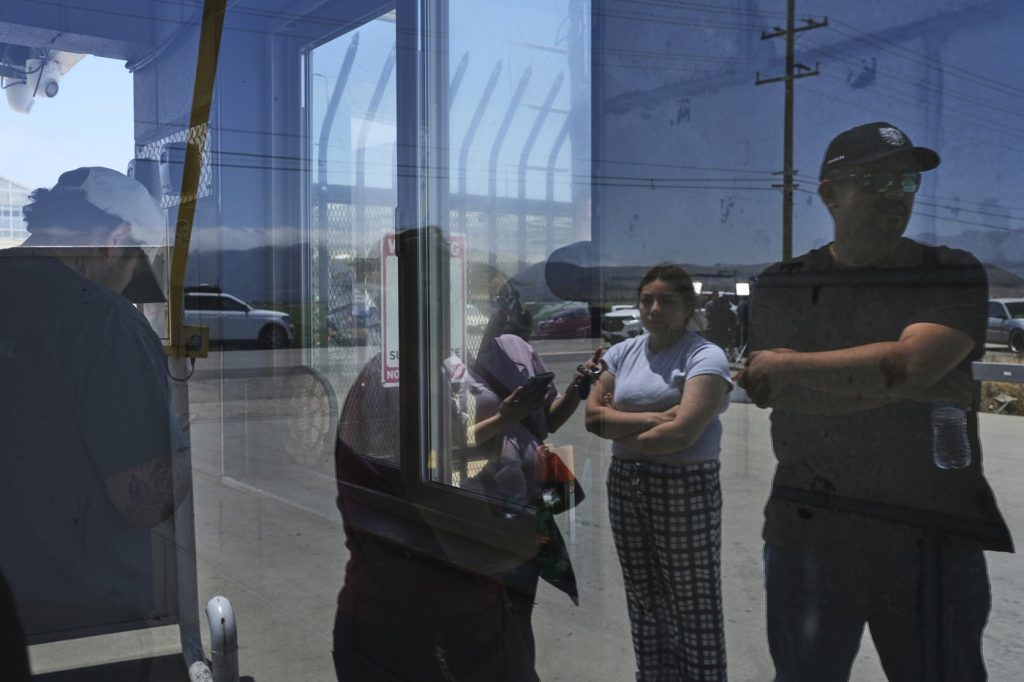LOS ANGELES (AP) A federal appeals court upheld a lower court's temporary order that blocks the Trump administration from conducting indiscriminate immigration stops and arrests in Southern California. The ruling came on Friday night after a three-judge panel of the Ninth U.S. Circuit Court of Appeals heard arguments from the federal government seeking to overturn the temporary restraining order issued on July 12 by Judge Maame E. Frimpong. The government argued that the order hindered their ability to enforce immigration laws.
Immigrant advocacy groups filed the lawsuit last month, claiming that President Donald Trump's administration systematically targeted individuals based on their race and ethnicity during an immigration crackdown. The suit included claims from three detained immigrants and two U.S. citizens as plaintiffs. In her order, Judge Frimpong noted a "mountain of evidence" suggesting that federal immigration enforcement tactics were violating constitutional rights. She highlighted that using characteristics like race, ethnicity, language proficiency, or occupation as a sole basis for reasonable suspicion to detain individuals is unconstitutional.
The appeals court panel agreed with Judge Frimpong's assessment and questioned the necessity of the government’s opposition to the injunction, which aims to prevent unconstitutional stops. The judges remarked, "If, as Defendants suggest, they are not conducting stops that lack reasonable suspicion, they can hardly claim to be irreparably harmed by an injunction aimed at preventing a subset of stops not supported by reasonable suspicion."
A preliminary injunction hearing is scheduled for September, which will serve as a more substantial court order while the lawsuit continues. The Los Angeles region has been a significant focal point in the battle against the Trump administration’s aggressive immigration strategies, prompting protests and the deployment of National Guards and Marines for several weeks. Federal agents have apprehended undocumented immigrants from various locations, including Home Depots, car washes, bus stops, and farms, many of whom have lived in the U.S. for decades.
Among the plaintiffs is Brian Gavidia, a Los Angeles resident caught on video being detained by federal agents, asserting his citizenship as he was seized. The ACLU attorney Mohammad Tajsar emphasized that the practices being challenged could lead to dangerous outcomes, where a U.S. citizen could face unwarranted aggression simply due to their work environment.
The federal government contended that it had insufficient time to gather evidence to substantiate its defense due to the lawsuit being filed shortly before the July 4 holiday. Attorney Jacob Roth argued that making a serious claim of constitutional violations against multiple federal agencies was significant. He characterized the lower court's restraining order as excessively broad and maintained that the advocates did not provide enough evidence of an official government policy endorsing stops without reasonable suspicion.
Roth referred to the factors under scrutiny, questioning the fairness of limiting their use entirely. However, the judges challenged this sentiment. Judge Jennifer Sung pointed out that no one suggested that these factors should be entirely disregarded, but using them solely would create inadequate profiles to meet reasonable suspicion standards, particularly in a diverse area like Los Angeles. She expressed concern about the harm of preventing actions that the government claims it does not partake in.
Los Angeles Mayor Karen Bass labeled the court's decision a "victory for the rule of law," asserting the city’s commitment to shielding residents from racial profiling and other illegal tactics employed by federal agents.











